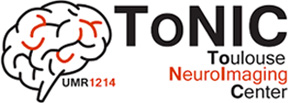Recherche translationnelle en santé,
technologie pour la santé et recherche clinique

DETERMIND (in the making) / Axis 1: Genetics and Neurodevelopment
The aim of this area is to characterise the genetic, biological and environmental factors specific to neurodevelopmental disorders and measure their impact on the cognitive trajectory of individuals. The use of new-generation sequencing technologies, including long-read sequencing, will make it possible to describe new causal genes for neurodevelopmental pathologies. It will also be possible to identify replications, delimit endo-phenotypes through fine phenotyping and establish genotype-phenotype correlations. For example, we have extended the phenotypic spectrum of hypusination pathologies by demonstrating that biallelic variants of the DOHH gene lead to intellectual disability with progressive cerebral atrophy linked to a hypusination defect in eIF5A (Ziegler et al., 2022). In the medium term, this line of research will also be based on bio-banking data from adult patients with neurodevelopmental disorders, and the pooling of these data with other large-scale research projects such as the SPARK cohort (IP W. Chung (MD-PhD) https://sparkforautism.org/). The results of these studies will engage the team in the development of innovative therapeutic trials using approaches such as antisense oligonucleotides (Jonker et al., 2025) or gene editing (Raguram et al., 2022). The falling costs of genetic therapies mean that personalised therapies can be deployed even for nano-rare pathologies (O’Connor et al., 2025).
